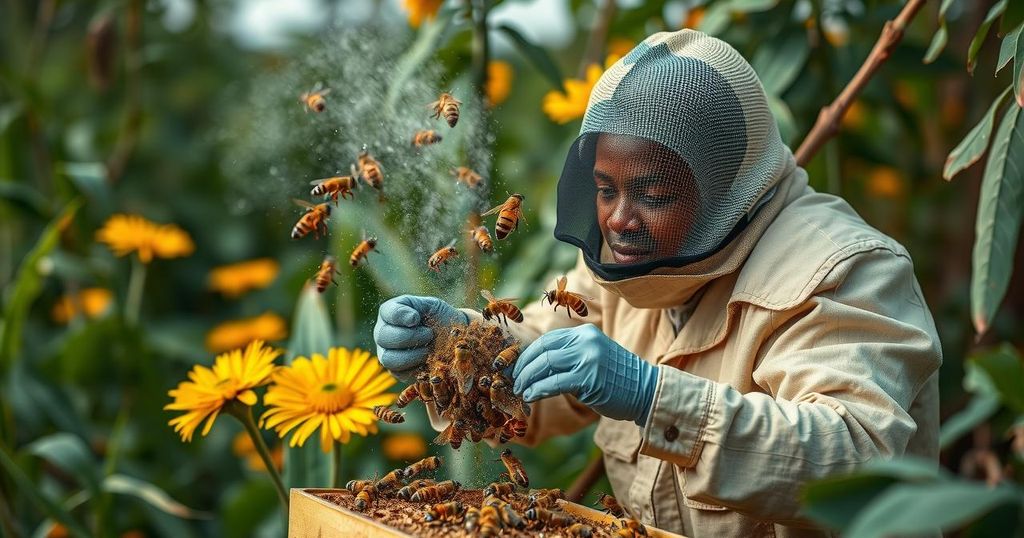Beekeeping: A Climate Resilient Livelihood for Kenyan Communities

Beekeeping in Kenya is being promoted as a viable alternative for communities affected by climate change. With dryland populations facing severe impacts from droughts and floods disrupting traditional farming and livestock practices, experts are facilitating the shift towards beekeeping to foster climate resilience.
In Kenya, beekeeping is emerging as a vital strategy for communities grappling with the challenges posed by climate change. The U.N. Environment Program highlights that populations residing in drylands face severe adversities due to global warming, leading to persistent droughts and floods that disrupt traditional livelihoods such as agriculture and livestock keeping. In response to these changing climatic conditions, conservation specialists are collaborating with local residents to establish beekeeping as a sustainable and resilient alternative, thereby enhancing their capacity to thrive despite environmental uncertainties.
The issue of climate change is particularly pressing for communities in Kenya’s dryland areas, where alterations in weather patterns have made conventional agricultural practices increasingly untenable. The U.N. Environment Program underscores this crisis, indicating that frequent droughts and flooding have rendered farming and livestock management unsustainable. In light of this dire situation, efforts are being made to introduce beekeeping, a practice that not only offers economic opportunities but also promotes environmental sustainability.
In conclusion, beekeeping presents a promising avenue for communities in Kenya to adapt to the adverse effects of climate change. By embracing this alternative livelihood, these populations are not only mitigating the risks associated with climate-induced disruptions but also contributing positively to their local ecosystems. This strategic shift is essential for fostering resilience in the face of ongoing environmental challenges.
Original Source: www.voaafrica.com








